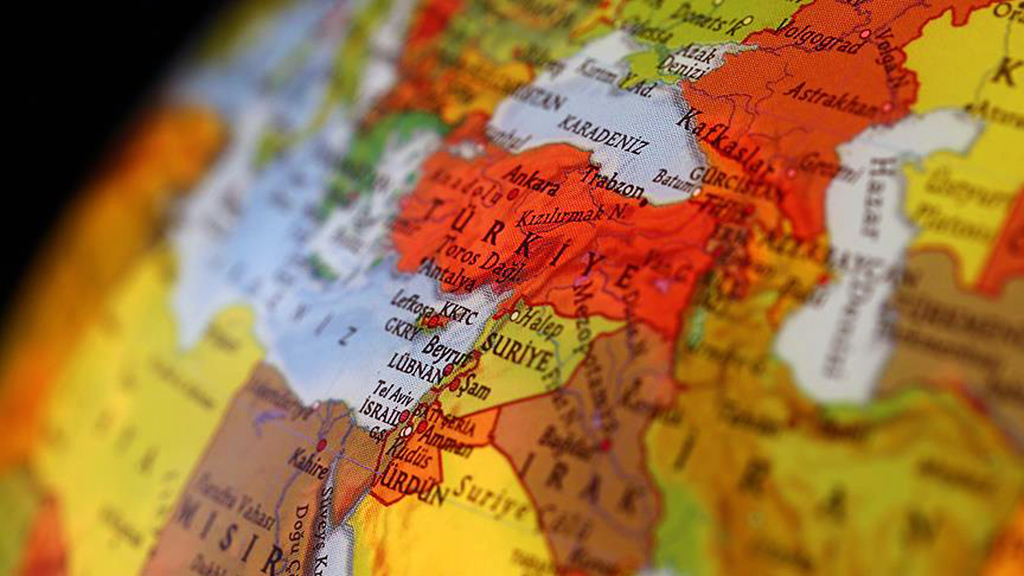
From Charlottesville to Barcelona: Vicious Cycle of Racism and Terror
The latest terrorist attack in Barcelona at the popular Las Ramblas tourist attraction, known from George Orwell's "Homage to Catalonia," killed 13 people and constitutes the most recent unfortunate incident in this context
Share
The rise of far-right politics, xenophobia and Islamophobia in the Western world, as well as acute instability and civil wars in the Middle East, continue to feed a vicious cycle of alienation, hatred and violence utilized by terrorist organizations such as Daesh. These trends set a dangerous precedent whereby mainstream political movements both in Europe and the U.S. position themselves closer to far-right and xenophobic groups. While far-right populism has been on the rise in mainland Europe for some time, Donald Trump's presidency has underlined the extent of the potential dangers in the U.S. that might undermine the atmosphere of tolerance and peaceful coexistence. The recent events in Charlottesville, Virginia, where racists and far-right groups, including the Ku Klux Klan, white supremacists and neo-Nazis, violently attacked anti-racist protesters, has sent shockwaves around the world. The attack turned the spotlight on the rapidly growing racist groups in the U.S. with increasing self-confidence and public visibility while the failure of the Trump administration to convey prompt and outright condemnation caused widespread disappointment with the American leadership, which has historically championed liberal values. It took Trump three days and a lot of hard thinking before he could half-heartedly condemn the racist groups, most of whom were his political allies on the campaign trail.
In Europe, the relationship between the rise of far-right politics, extremism and terrorism is even more sophisticated due to a number of reasons. First, Europe is physically closer to the Middle East and the major conflict hot spots with failed states and European countries have millions of local citizens and residents with strong ties with their homelands in war-torn areas. Therefore, far-right rhetoric and xenophobia in Europe have a more extensive impact on the part of the local population who feel economically disadvantaged, socially excluded and left deprived of educational or career opportunities. Terrorist organizations such as Daesh skillfully use this alienation among the European youth to recruit new activists and operatives at a time when they are rapidly losing ground in Syria and Iraq. Furthermore, European security and monitoring systems are not as tight as those of the U.S., which makes social organization and terrorist recruitment relatively easier for most radical groups. Hence, for terrorist groups such as Daesh, shifting terrorist attacks to the heart of Europe through autonomous cells and young sympathizers from among the local population seems to have crystallized as a strategy recently.
Although there have been occasional attacks before, the chain of major terrorist attacks by Daesh operatives in European capitals started with a suicide bombing at the Stade de France and assaults at the Bataclan concert hall in November 2015. Then in March 2016, there were bombing at the Brussels Airport and metro stations followed by a major truck attack in the southern French city of Nice in July 2016 during Bastille Day celebrations. A Berlin market was hit by another truck attack during Christmas of 2016. From February to April 2017 there were two knife and gun attacks in Paris, one right in front of the Louvre Museum and the other on the Champs Elysees. In March 2017, pedestrians on Westminster Bridge were run over just outside British parliament and Stockholm was shocked to see a truck attack on civilians in the heart of the city just a month later in April 2017. There were three consecutive terrorist attacks in the U.K. in May and June 2017, starting with the Manchester Arena attack in May, continuing with the London Bridge assault in June and the Finsbury Park attack on Muslim worshipers the same month. It is needless to say that hundreds of innocent civilians lost their lives and more were seriously wounded in these heinous terrorist attacks.
This worrying list of terrorist attacks demonstrates that Daesh has a strategy to keep Europe under pressure through regular assaults on civilians and so-called soft targets. The latest terrorist attack in Barcelona at the popular Las Ramblas tourist attraction, known from George Orwell's "Homage to Catalonia," killed 13 people and constitutes the most recent unfortunate incident in this context. The attack continued the recent pattern of driving a van or track into pedestrians in crowded tourist areas. While Daesh steadily loses ground in Syria and Iraq following the capture of its strongholds of Raqqa and Mosul, it continues to mastermind terrorist attacks in Europe directly or through autonomous cells.
An effective strategy to counter the spread of violent terrorism requires multilateral and unreserved security collaboration among the relevant authorities of European and Middle Eastern states. But more importantly, security measures should be accompanied by a discursive, ideological battle to oust the far-right, xenophobic and alienating approach on ethnic and religious minorities from mainstream political spaces in the West. This is vital to alleviate the breeding grounds of radical and terrorist organizations
[Daily Sabah, August 19, 2017]
Tags »
Related Articles
Policy Report
One Year At War | The Past, Present and Future of Sudan’s Civil War and Proposed Solutions
June 2024






